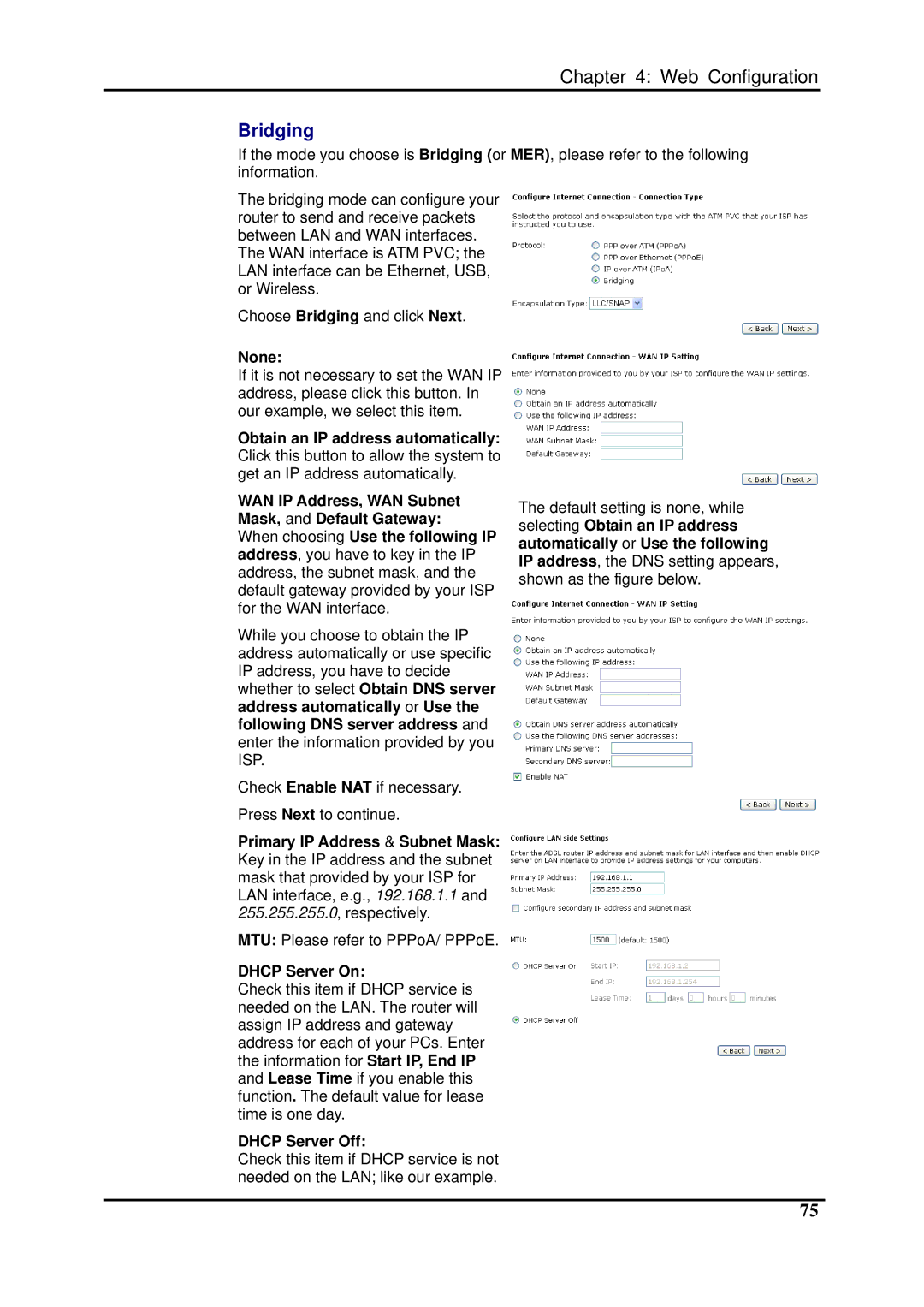
Chapter 4: Web Configuration
Bridging
If the mode you choose is Bridging (or MER), please refer to the following information.
The bridging mode can configure your router to send and receive packets between LAN and WAN interfaces. The WAN interface is ATM PVC; the LAN interface can be Ethernet, USB, or Wireless.
Choose Bridging and click Next.
None:
If it is not necessary to set the WAN IP address, please click this button. In our example, we select this item.
Obtain an IP address automatically: Click this button to allow the system to get an IP address automatically.
WAN IP Address, WAN Subnet Mask, and Default Gateway:
When choosing Use the following IP address, you have to key in the IP address, the subnet mask, and the default gateway provided by your ISP for the WAN interface.
While you choose to obtain the IP address automatically or use specific IP address, you have to decide whether to select Obtain DNS server address automatically or Use the following DNS server address and enter the information provided by you ISP.
Check Enable NAT if necessary. Press Next to continue.
The default setting is none, while selecting Obtain an IP address automatically or Use the following IP address, the DNS setting appears, shown as the figure below.
Primary IP Address & Subnet Mask: Key in the IP address and the subnet mask that provided by your ISP for LAN interface, e.g., 192.168.1.1 and 255.255.255.0, respectively.
MTU: Please refer to PPPoA/ PPPoE.
DHCP Server On:
Check this item if DHCP service is needed on the LAN. The router will assign IP address and gateway address for each of your PCs. Enter the information for Start IP, End IP and Lease Time if you enable this function. The default value for lease time is one day.
DHCP Server Off:
Check this item if DHCP service is not needed on the LAN; like our example.
75
